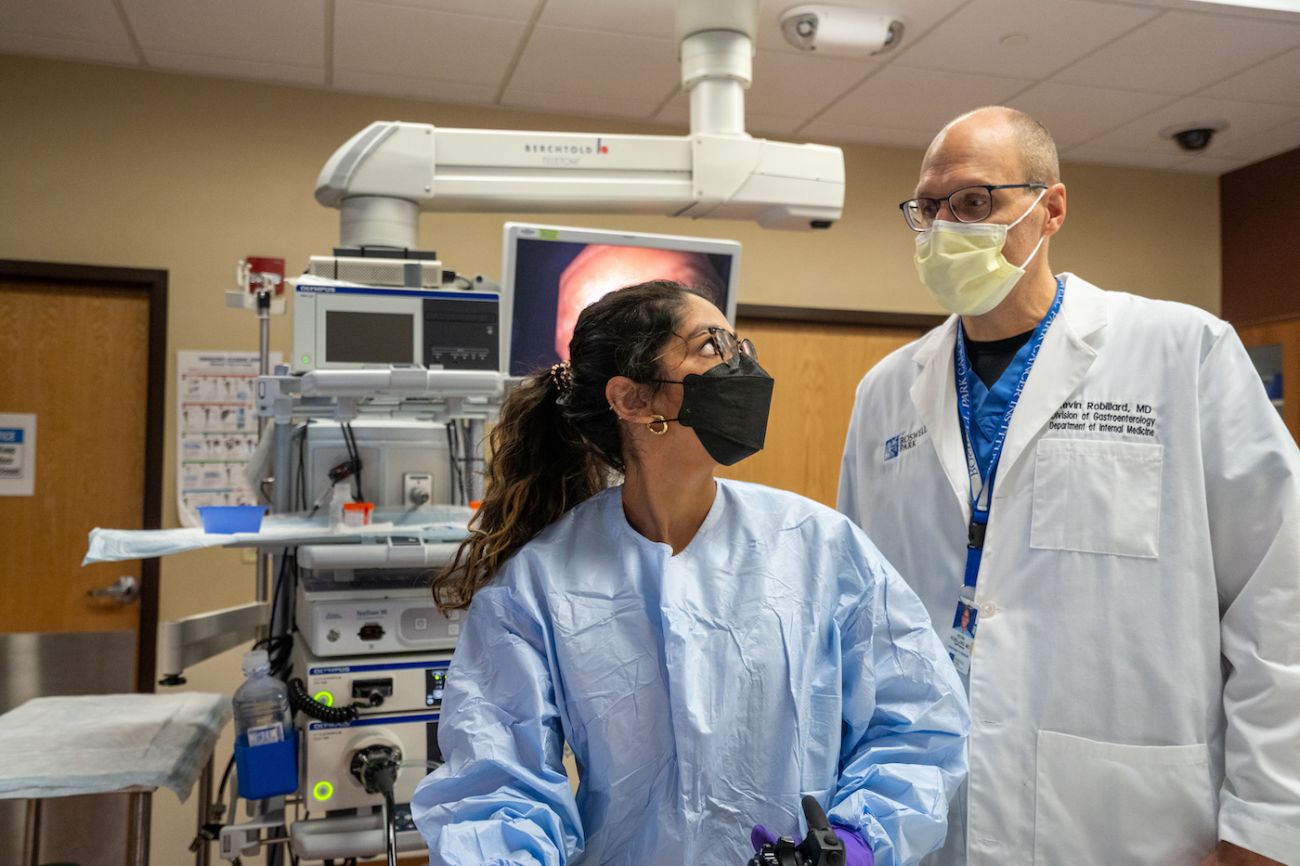The exact reason for why one person develops stomach cancer while another does not remains unclear. Stomach cancer is two times more common in men than in women, and like many cancers, your risk increases as you age. It is most frequently diagnosed among people in their 60s and 70s.
Stomach cancer is more common in other areas of the world, such as East Asia, Eastern Europe, and in South and Central America, than it is in North America.
While stomach cancer is less common in the United States, certain populations — Hispanic Americans, African Americans, Native Americans, and Asian/Pacific Islanders — face a greater risk for the disease.
Am I at risk for stomach cancer?
You may be at increased risk for developing stomach cancer if any of the following apply to you. See your primary healthcare provider to discuss ways to minimize your risks and monitor your health.
- Helicobacter pylori infection. Also called H. pylori, this bacterium causes inflammation and ulcers in the stomach and small intestine. Two-thirds of the world’s population is estimated to harbor H. pylori in their stomachs with infection rates higher in developing countries than developed nations. The bacterium is believed to spread through contaminated water and food, or direct mouth-to-mouth contact. Testing for H. pylori can be done with a breath test or endoscopic tissue biopsy and the infection is very treatable with antibiotics. You should get tested if you have a first degree relative or household member is positive for H. pylori infection. Not everyone with H. pylori infection develops stomach cancer.
- Overweight and obesity. Excess weight produces a pro-inflammatory state in the body which can foster the development of cancer. Increased abdominal weight and pressure also contributes to chronic reflux.
- Diet. Heavy consumption of salted, grilled or charcoaled meats.
- Alcohol use. People who drink three or more drinks per day are face greater risk.
- Smoking or exposure to secondhand smoke. Smokers have double the rate of stomach cancer compared to nonsmokers.
- Inherited cancer syndromes. Certain inherited gene mutations are associated with increased risk for several cancer types.
- Hereditary diffuse gastric cancer (HDGC). People with this genetic syndrome, caused by a mutation in the CDH1 gene, are at high risk for developing stomach cancer at a young age, and may consider surgical removal of the stomach as a preventive measure.
- Familial intestinal gastric cancer (FIGC)
- Lynch syndrome (or Hereditary non-polyposis colorectal cancer, HNPCC)
- Familial adenomatous polyposis (FAP)
- Gastric adenoma and proximal polyposis of the stomach (GAPPS)
- Li-Fraumeni syndrome
- Peutz-Jeghers syndrome
- Juvenile polyposis
- MUTYH associated polyposis (MAP)
- Hereditary breast/ovarian cancer syndrome (HBOCS)
- Family history of stomach cancer. Most cases of gastric cancer are sporadic, however, in up 10% of cases, patients have a first degree relative (parent, sibling, or child) but no identifiable genetic mutation.
- Long-term stomach inflammation. Inflammation that occurs with conditions like pernicious anemia or as an autoimmune condition called atrophic gastritis, increases stomach cancer risk.
- Prior gastric surgery. People who have had stomach operations in the past are also at increased risk. The association may stem from reduced gastric acid production or achlorhydria and chronic inflammation from bile reflux into the remnant stomach. The risk has been observed to increase many years after the surgery.
- Ethnicity. In the United States, stomach cancer is more common in Hispanic Americans, African Americans, Native Americans, and Asian/Pacific Islanders than it is in non-Hispanic whites.
- Certain stomach polyps. Adenomatous polyps (or adenomas) may transform into cancer. If detected early, these are usually removed by endoscopy.
- Common variable immune deficiency, a condition in which the immune system cannot make enough antibodies to ward off germs, leading to frequent infections and other conditions such as atrophic gastritis and pernicious anemia.
- Epstein-Barr virus infection. This common virus is known to cause mononucleosis. A direct link between this virus and cancer is unclear.
- Certain occupations, such as working in the coal, metal and rubber industries.
- Type A or AB blood. Rates of gastric cancer are higher in A and AB blood groups for reasons unknown.
